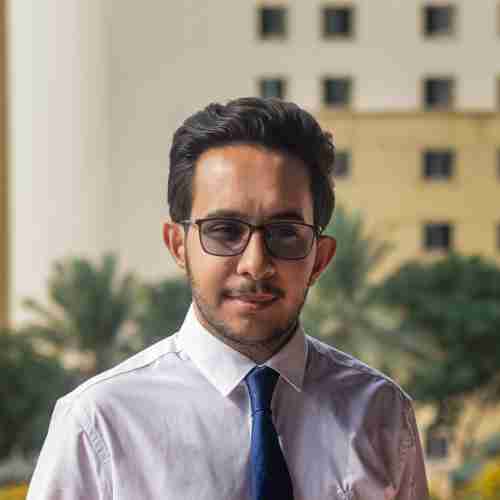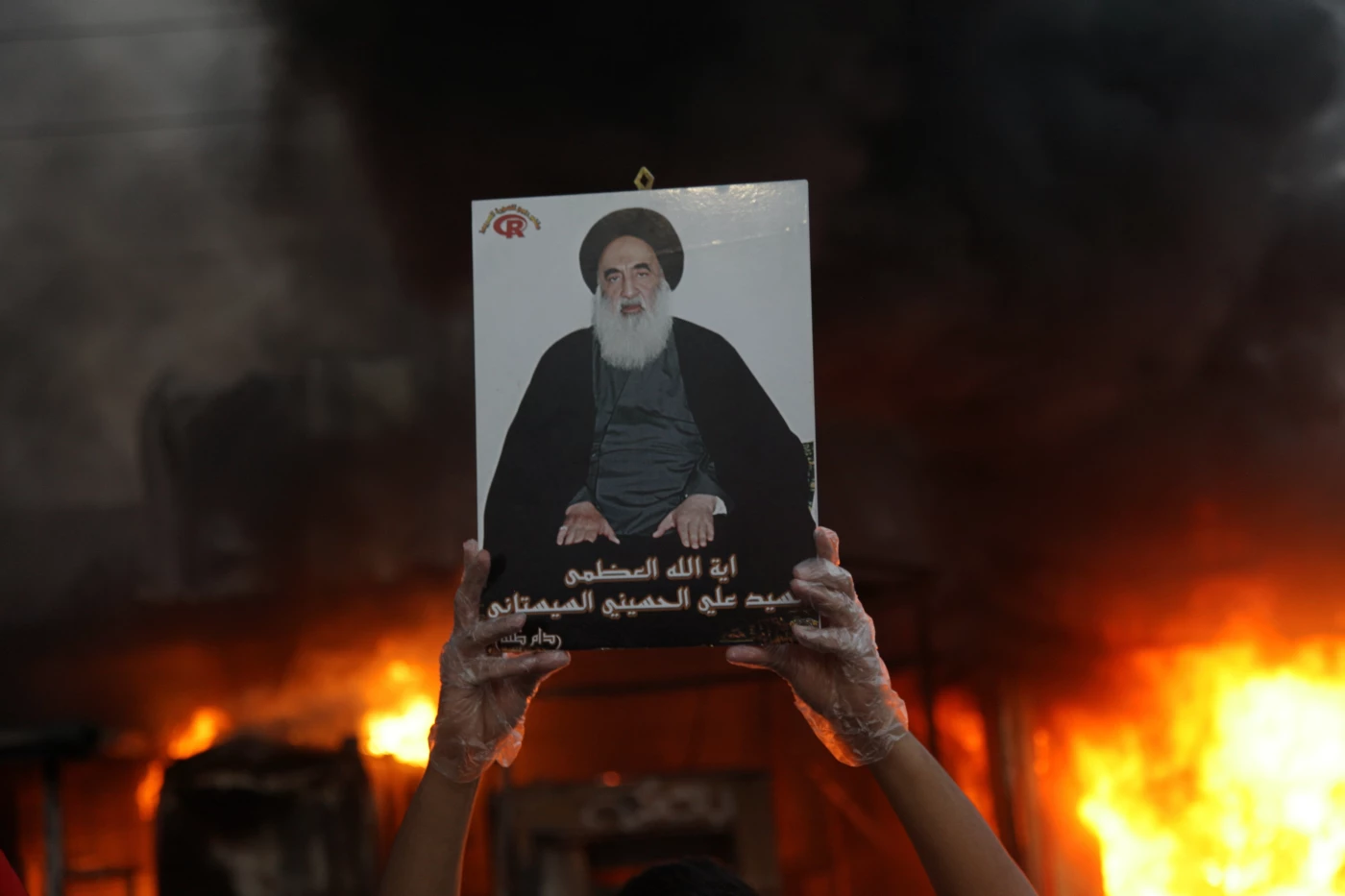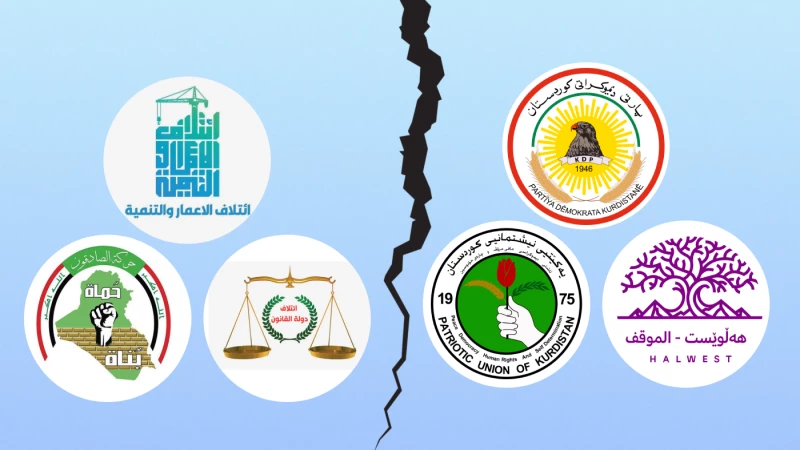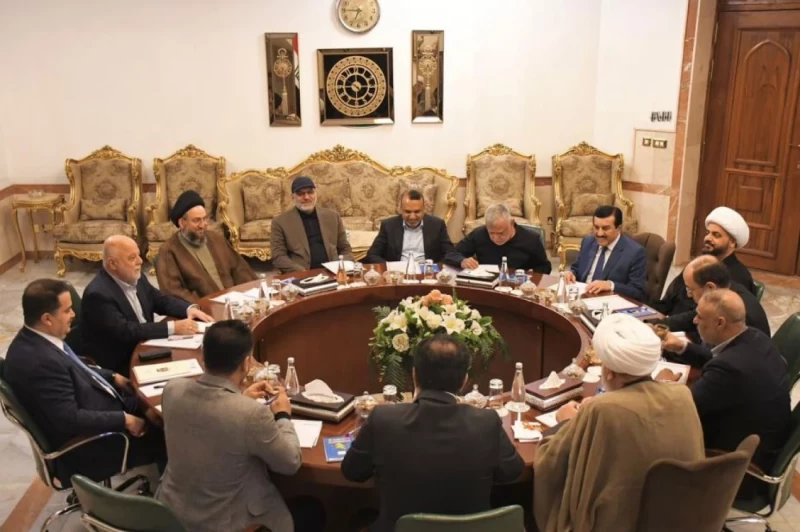The religious establishment in Najaf has historically intervened to shield Iraq's current political system from collapse or radical changes, thereby ensuring its own stability. However, its capacity to uphold this role is waning due to the growing influence of Iran-backed militias that increasingly challenge and circumvent Najaf's directives, effectively rendering them ineffective. Additionally, shifting social dynamics in Iraq's predominantly Shiite central and southern regions - areas where Grand Ayatollah Ali al-Sistani holds significant sway - raise concerns that, following his death, Iraqi Shiites may turn to non-traditional religious authorities.
This scenario necessitates exceptional measures by the religious institution to maintain its social and political standing within Iraq to preserve Najaf's central role in the global Shia community.
Since 2003, Najaf's religious institution has aimed to preserve Iraq's political framework by intervening during critical junctures. For instance, after Muqtada al-Sadr's victory in the 2021 parliamentary elections, Najaf imposed conditions requiring the inclusion of other Shiite factions in government formation, thereby preventing the exclusion of Shiite parties and ensuring the continuation of coalition governments, a norm that has been followed since 2003. Similarly, in 2014, Najaf urged members of the Islamic Dawa Party to find an alternative to Nouri al-Maliki for the prime minister position, following a tenure marked by sectarian policies that contributed to the rise of the Islamic State (ISIS) and heightened conflict.
During the 2019-2020 Tishreen protests, Najaf's religious authority supported demonstrators' demands, leading to the resignation of then-Prime Minister Adel Abdul-Mahdi after the “Zaytoun Bridge Massacre” in Nasiriyah, where security forces killed approximately 100 civilians.
Najaf's backing helped channel public anger from changing the entire political system into calls for government resignation, electoral reforms, and early elections, thereby diffusing potential threats to the political system and encouraging protesters to engage through the democratic processes.
Implications of October 7
In a statement following a meeting with the UN Secretary-General’s Special Representative for Iraq Mohamed Al Hassan, Grand Ayatollah al-Sistani emphasized the need to “prevent foreign interference,” “uphold the rule of law,” and “restrict arms to state control.”
These remarks, contextualized by their timing, aimed to bolster official institutions' efforts to keep Iraq out of the regional conflict between Iran and Israel, especially as armed factions sought to use Iraqi territory for military operations. Engaging in direct confrontation with Israel could lead to devastation akin to that experienced in Lebanon and Gaza, particularly given Israeli indications of targeting Iraq due to actions by “resistance factions.”
Najaf's stance supports the political system by aligning with the government against militias, advocating for Iraq's non-involvement in an unequal conflict, and promoting civilian aid through donations.
Militia-affiliated media have attempted to deflect Najaf's criticisms by reinterpreting them within familiar Iraqi narratives, thereby diluting their impact. For example, a parliament member from the Badr Organization framed Sistani's statement as solely addressing corruption, while leaders of the Sayyid al-Shuhada Brigades - a militia group - insisted the statement did not pertain to them.
Following the events of October 7, pro-Iranian factions, known as Wala’yis -“Wilayat al-Faqih” adherents -, capitalized on Iraqi public outrage over the genocide in Gaza to reassert themselves publicly. This period allowed them to adopt more radical positions than those of Najaf's religious authority, attracting many Iraqis, particularly impassioned youth. Iran's Supreme Leader Ali Khamenei was portrayed as taking bolder stances than Sistani, leading segments of the Iraqi populace to gravitate toward the “Wilayat al-Faqih” narrative.
This rhetoric primarily influences conservative and religious communities for whom identifying a Marja' is crucial, thereby positioning pro-Iran factions as competitors to Najaf within its traditional spheres of influence.
The Coordination Framework, since Prime Minister Mohammed Shia' al-Sudani's tenure, has granted significant privileges to armed factions at the state's expense. This includes establishing “al-Muhandis Company” with a capital of 100 billion Iraqi dinars (approximately $75 million) and allocating it 2 million dunams of land (about 49,000 square kilometers) in the Samawah desert near the Saudi border.
Additionally, the 2023 budget approved 100,000 new positions within the Popular Mobilization Forces (PMF), and groups like “Abnaa' al-Muhandis” - named after former PMF deputy chief Abu Mahdi al-Muhandis, who was killed in an American airstrike - were permitted to operate freely in universities.
These governmental concessions threaten the continuation of “Sistani's principle,” which advocates for a civil, non-religious state in Iraq after his death, as they could be used to garner support for new Iran-aligned religious authorities, mirroring the clientelistic networks political parties use to secure electoral loyalty.
Civil society concerns
The Iraqi parliament's attempt to amend the Personal Status Law, replacing its civil framework with sectarian provisions based on religious interpretations, prompted Shiite cleric Rashid al-Husseini, aligned with Najaf's authority, to support the amendment.
He criticized human rights advocates opposing the proposal, labeling them “corrupt” and “insignificant,” and warned lawmakers that “our patience has limits.” Such rhetoric, uncommon among Najaf's representatives, sparked widespread condemnation and reignited debates about the Shiite religious institution's post-2003 role.
Questions arose: If the institution can pressure the political class, why has it not addressed citizens' deteriorating living conditions?
Historically, Najaf's religious authority has engaged positively with diverse Shiite communities, influenced by the khums contributions from individuals and merchants, who could redirect these funds to other clerical authorities if their interests are not met. Husseini's stance deviates from Najaf's traditional approach.
Enacting the Personal Status Law amendment would adversely affect women's and children's rights, potentially depriving many women of inheritance and child custody rights, and legitimizing child marriages. This would disrupt Iraqi society, accustomed to the current law in place for nearly 60 years, and might lead devout women facing civil rights erosion to follow other religious authorities.
The social implications of religious allegiance in Shiite communities are significant. Najaf's traditional institution has historically faced challenges, notably with the rise of Mohammed Sadiq al-Sadr, who empowered rural populations in central and southern Iraq to study religious sciences, garnering their support. Before Sadr, such opportunities were limited to clerical families in Najaf and Karbala. The emergence of a “non-traditional Marja’” rooted in such social grievances is plausible after Sistani's death, potentially undermining the religious institution's influence compared to its current standing.
Post-Sistani era
The religious establishment is unlikely to adopt policies addressing Iraq's evolving political and social changes at this time, primarily due to a state of inertia and anticipation for the post-Sistani period. Some senior clerics believe the institution requires no such adjustments, trusting in a form of divine protection.
However, the inevitability of a power reconfiguration within Shiite circles after Sistani's death cannot be ignored, especially with emerging influential players like the “Wilayat al-Faqih” adherents, who receive governmental and regional support.
With Iran's influence waning in Lebanon due to significant setbacks suffered by Hezbollah, and the fall of its ally, Bashar al-Assad's regime in Syria, Iran is likely to focus on consolidating its political, social, and religious influence in Iraq, considering it a component of its national security. The religious institution in Najaf is not immune to these developments.
Under these circumstances, the most logical approach for the religious establishment is to engage more openly with Iraqi society, earnestly addressing the growing concerns of civil society and citizens' demands for a dignified life, even if it necessitates substantial and genuine reforms to the current political system.
Prompt selection of a relatively younger Marja’ would facilitate this process, particularly if they gain support from Sistani's existing network of institutions and relationships, and commit to continuing Sistani's stance against establishing a theocratic state in Iraq or further Iranian expansion. Additionally, reinforcing a national political vision that regards Najaf as integral to the “Iraqi nation” identity would be beneficial.
The views expressed in this article are those of the writer and do not necessarily represent the position of The New Region



 Facebook
Facebook
 LinkedIn
LinkedIn
 Telegram
Telegram
 X
X


